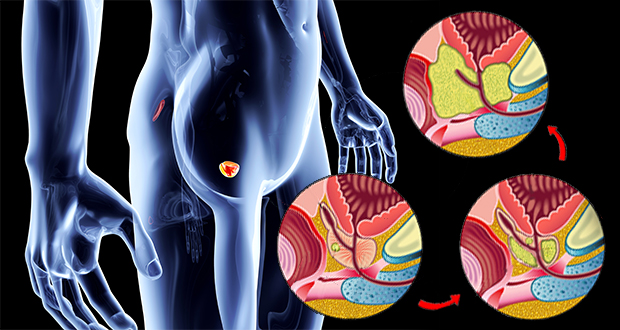When it comes to prostate cancer at early stage, there are usually no warning signs. However, as tumor makes the prostate gland to swell or the cancer spreads beyond the prostate, patient may experience the following symptoms:
– Difficulty starting or stopping a stream of urine
– A frequent urge to urinate, especially at night
– Unable to urinate standing up
– Interrupted or weak urinary stream
– Blood in semen / urine
– Urine leaks while coughing or laughing
– A burning or painful sensation while ejaculating or urinating
Although these aren’t sole symptoms of the cancer itself; these are caused due to the blockage resulting from the growth of cancer growth within the prostate. In some cases, the symptoms may also be experienced due to an infection of the urinary tract or an enlarged, noncancerous prostate. For more information on symptoms and possible treatment options, visit www.miamiroboticprostatectomy.com.
Here are some symptoms of advanced stage of prostate cancer Monroe la:
– Dull, deep pain or stiffness in the pelvis, lower back, ribs, or upper thighs; pain in the bones of those areas
– Loss of weight and appetite, fatigue, nausea, or vomiting
– Swelling of the lower extremities
– Weakness or paralysis in the lower limbs, often with constipation
Call Your Doctor If:
You face trouble urinating or find that urination is painful or different from normal.
The doctor must examine your prostate gland to determine whether it is enlarged, inflamed with an infection, or even cancerous.
– You suffer from chronic pain in your lower back, pelvis, upper thighbones, or other bones.
– You have unexplained weight loss.
– Your legs are swollen.
– You experience weakness in your legs or difficulty walking, especially if you also have constipation.
Regular Screening
Who should undergo regular screening for prostate cancer?
The American Cancer Society recommends that men aged 50 and above pose an average risk for prostate cancer and an expectation of living at least 10 years or more. Those aged 45 fall in the high-risk group and aged 40 with one close relative (father, brother, or son) who had prostate cancer at an early age
Meet a health care provider if you notice any of the following listed symptoms:
– Difficulty initiating or stopping a urine stream
– Blood in semen
– Pain on urination
– Frequent urination
– Pain on ejaculation
Visit the nearest hospital emergency department immediately if you experience any of the following symptoms:
– Burning pain while urinating, an urgency to urinate, and very frequent urination, especially with fever.
– Producing very little urine despite straining.
– Not urinating or urinating very little, with little discomfort. This happens despite drinking enough fluid.
– Not able to urinate or urinating very little despite drinking ample fluid.
– Pain due to a full bladder.
– Deep bone pain, especially in the thighs, hip, or back. This indicates that prostate cancer has reached an advanced stage and has spread to the bones.
Prostate cancer can also spread to surrounding organs or travel through bloodstream or lymphatic system to bones or other organs. Spine is known to be the most common site for bone metastasis in prostate cancer patients. The pressure from the vertebrae or the tumor at the spine will lead to compression of the spinal cord. Spinal cord compression is a true emergency and may be the first sign of cancer.
Failure to treat the condition will immediately result in permanent spinal cord damage. Please visit AutoVillage.co.uk to get Vehicle Leasing or used citroen c3 cars for sale

